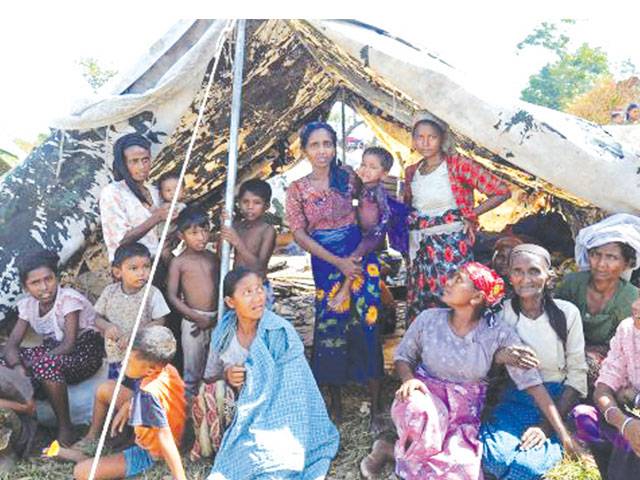UNITED NATIONS - A top United Nations envoy has raised the alarm over “appalling conditions” in Myanmar’s displacement camps, which hold thousands of Rohingya Muslims made homeless in communal violence two years ago.
Some 140,000 people, mainly the stateless Rohingya, are trapped in miserable camps in Rakhine state following the bloody clashes between Buddhists and Muslims in 2012 that left around 200 dead. “In Rakhine, I witnessed a level of human suffering in (displacement) camps that I have personally never seen before, with men, women, and children living in appalling conditions with severe restrictions on their freedom of movement, both in camps and isolated villages,” Deputy Emergency Relief Coordinator Kyung-Wha Kang told a press conference at UN Headquarters in New York on Monday after her return from a visit to Myanmar. The UN official said many people had “wholly inadequate access to basic services including health, education, water and sanitation”.
In March, medical aid group Doctors Without Borders (MSF) was expelled from the state, where it provided essential healthcare to hundreds of thousands of Rohingya.
Later that month Buddhist extremists, accusing international aid groups of bias towards Muslims, raided warehouses and destroyed property causing most humanitarian organisations to pull out their staff. The UN says only 60 percent have been able to return.
Myanmar describes the Rohingya as Bengalis, a term that implies they are illegal immigrants from neighbouring Bangladesh. Many say they have lived in Rakhine for generations.
In Kachin, Kang said she was only able to visit one camp in a government-controlled area, but also spoke with aid workers helping in areas held by the Kachin Independence Army rebels.
“Access by international humanitarian organizations is improving through cross-line missions but aid agencies need regular, predictable, and sustained access to all IDPs,” she told reporters.
The United Nations has warned the violence in Rakhine state poses a serious threat to the country’s dramatic economic and political reforms as it emerges from half a century of military rule.
Kang said the United Nations is also engaged with the government to address the issue of statelessness - the root cause of the violence - and is pressing for changes in the legal system so Rohingyas can have a path to citizenship, but “there has not been much movement,
admittedly, so far.”
Friday, April 19, 2024
UN decries living conditions in Myanmar Muslim camps

Caption: UN decries living conditions in Myanmar Muslim camps
8:27 AM | April 19, 2024
8:09 AM | April 19, 2024
Opposition objects to oath-taking of MNAs amid lawlessness
5:15 PM | April 19, 2024
Electioneering to end on Friday night ahead of by-polls in 21 constituencies
5:14 PM | April 19, 2024
Fawad Chaudhry granted bail in 14 cases related to May 9 violence
5:13 PM | April 19, 2024
British Army chief lauds Pakistan Army's professionalism, expertise
5:12 PM | April 19, 2024
Israeli aircraft fire missiles at Air Force assets in Iran: Report
3:52 PM | April 19, 2024
A Tense Neighbourhood
April 19, 2024
Dubai Underwater
April 19, 2024
X Debate Continues
April 19, 2024
Hepatitis Challenge
April 18, 2024
IMF Predictions
April 18, 2024
Kite tragedy
April 19, 2024
Discipline dilemma
April 19, 2024
Urgent plea
April 19, 2024
Justice denied
April 18, 2024
AI dilemmas unveiled
April 18, 2024
ePaper - Nawaiwaqt
Advertisement
Nawaiwaqt Group | Copyright © 2024





